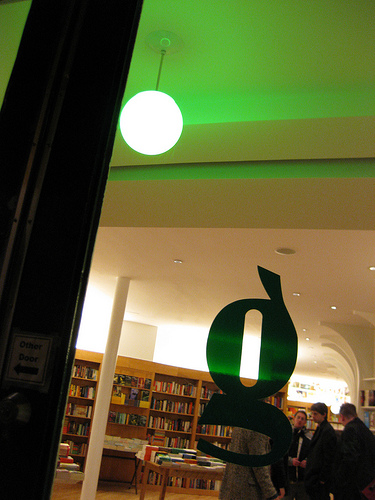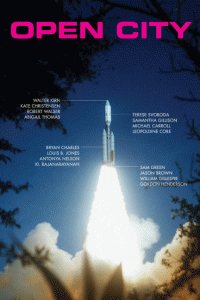Bill Yarrow‘s poems have converted me to poetry. He has no idea that I have been learning about poetry because of his work: the subtlety with which he renders grand themes: fine French five-course dining experiences in amazing bite-size morsels; every taste, the full gourmand experience delivered fully.
Yarrow’s work is expansive, even at its briefest, engaging even when I require multiple readings of a single poem. I undertake those many readings willingly because I come away enriched with knowledge about the world writ large and, as I determine what a poem of his means to me, his work enriches my smaller world, even when I imbue enjambment (The Blocked Toxin) with a novel reading of that word, perhaps a meaning far different than what the poet intended; but perhaps not.
But that is it, for me: Bill Yarrow’s poetry makes me feel like I am in on the whole concept and construct of this literary form called poetry: his work makes me feel encompassed by the form; neither coddled nor barred by a latched gate: what I derive from his content is real and true, and that gate is wide open to the likes of me.
Poetry has always seemed a bit elitist to me; proof, no doubt, of a hole in my literary education. The poet’s words, so cleverly and too often preciously juxtaposed for my taste, seem intended to obfuscate a discoverable meaning, when I yearn for those words to connect me to something deeper and help guide me to a more universal view.
We first respond to any creative work because of the way it affects us personally, and that must occur before we delve more deeply. Since joining Fictionaut, I have read more poetry than at any other time in my life, and there are several wonderful poets who publish their work on this site and whose work I read on a regular basis.
I acknowledge that I am a poetry novice. But every time I read a Bill Yarrow poem, I am submerged in his unique and fascinating world. It seems accessible, and it is, but hours later I find myself still thinking deeply about a particular line, a resonant pairing of words, a sentence, a linguistic feat, a phrase: cloying gratitude (Not Drowning); buttered emptiness (Pain); Not enough of us destroy what we create (Blossoms and Buds); I felt dark, dark like a heron on one leg in a Florida pond at dusk (The Sticking Point); the bright shell of confidence betrayed by arrogant risk (Raleigh B); When it rains, I can really think (Truman Compote); There is no daylight in the life to come when the darkness is not medicinal (Searching For the Word); I can tell the ones I liked by the handwriting alone (The Deterioration of My Handwriting); “One must not confuse the meaning of life with the joy of living,” she said (The Meaning of Life), and so many more, because the above is merely a sampling: a tasting menu.
Bill Yarrow has written so many poems that have sparked my imagination, about the embedded theme and my own take on that theme (Not Drowning); I fall into the world of his characters (Greyhound); I listen intently to way his people speak (The Meaning Of Life); and the stories they absorb (Raleigh B); the world they were once part of (In The Pastel City); or are still trying to be part of (The Sticking Point); and their own search for greater understanding; of what, for example, it means to create and destroy (Blossoms and Buds). My own thought process about the world expands as a result. With relatively few words (typically shorter than the most minute of micro-fiction), Bill Yarrow’s poems land with maximum impact.
There are two Yarrow poems that absolutely, selfishly, sparked my delight at the start, and have encouraged me to visit his poems repeatedly, rereading and then pouncing on new ones to absorb.
The Blocked Toxin and Natchez Shrapnel made me rethink my prior and prejudiced views of poetry. These two Yarrow poems were wide open, welcoming to a beginner like me. I grasped them. I could grapple with them. I got them (at least in my own way). I loved the way the words worked.
From Blocked Toxin: You try everything…. Nothing works…. Whatever you do, it’s just an enjambment of your stanza. Everything that is written between those ellipses is marvelous, but, for me, a theme shone through. I felt the stuck enjambment of the narrator. I could relate.
In Natchez Shrapnel, the poem, in its entirety, is enormously powerful, but the words that spoke eloquently to our universal condition: Yes, we are bullets, but we have all been hit by something resembling a trajectory, struck me hard: each one of us is a bullet, able, capable, regularly doing damage, and yet, all of us, always, are hit equally hard by something else, by someone else. We ping. We resonate. Each one of us pings and resonates off someone else. If we are lucky, we do good works, but, sometimes, we just wreak havoc: inflicting the desolate cry of the ultimate human condition on someone else. That is what I always feel reading a poem by Yarrow: he pings, he resonates; his work wreaks havoc on me, his work makes me think.
Even if I fail to arrive at the ultimate meaning intended by Yarrow in any of his poems, I am left basking in the meaning I derive, on my own, for myself. His poetry makes me feel alive; it works my synapses, engages all aspects of my soul. His poetry makes me feel smart, allows me to reach a core depth that I cherish. He is a fiction writer’s poet, a storyteller in stanzas.
Fictionaut Faves, a series in which Fictionaut members recommend stories on the site, is edited by Marcelle Heath, a fiction writer, freelance editor, and assistant editor for Luna Park. She lives in Portland, Oregon.
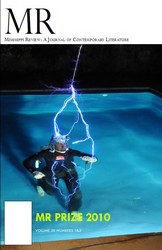
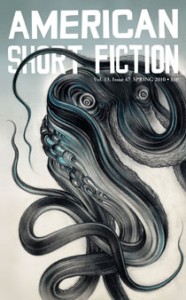
 There was a time when getting The New Yorker magazine delivered to my house was something of an event. (I don’t feel that way now and it sometimes makes me sad.) In those days the magazine was mailed out with a brown paper covering. I tore off the brown paper, checked out the cover art, then turned to the Table of Contents looking for
There was a time when getting The New Yorker magazine delivered to my house was something of an event. (I don’t feel that way now and it sometimes makes me sad.) In those days the magazine was mailed out with a brown paper covering. I tore off the brown paper, checked out the cover art, then turned to the Table of Contents looking for 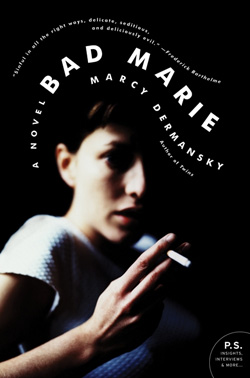
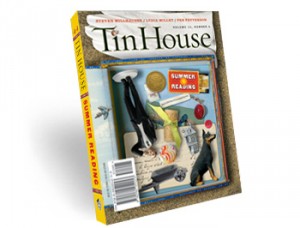
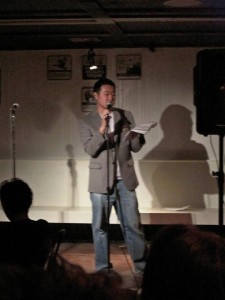 Matthew Salesses
Matthew Salesses